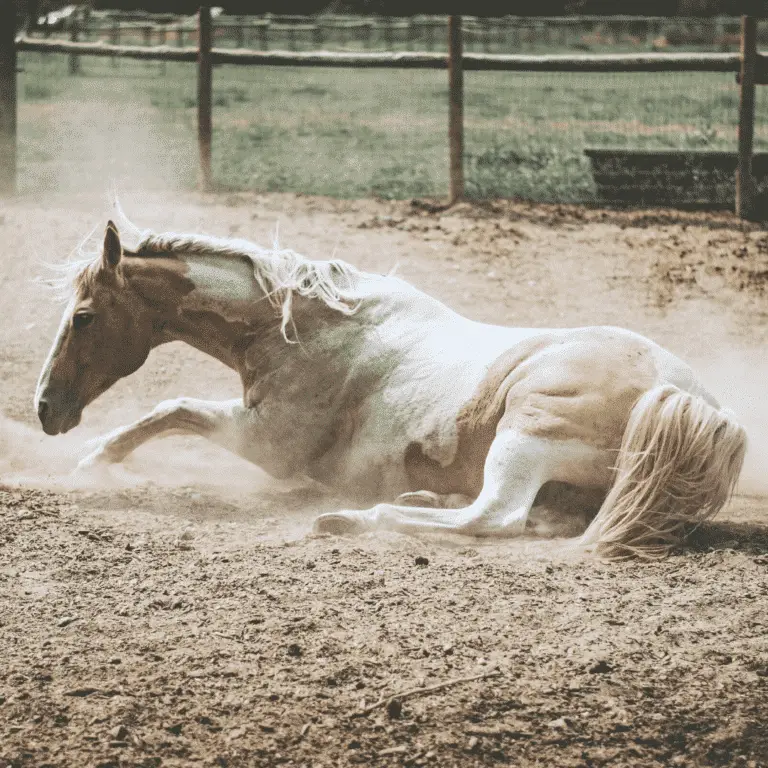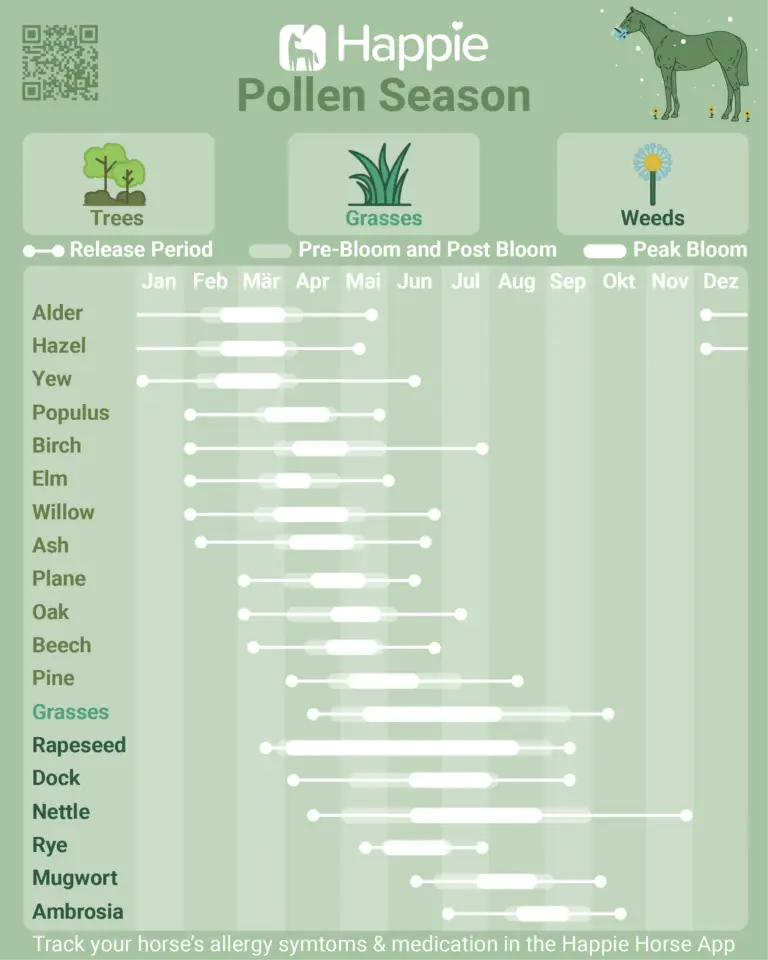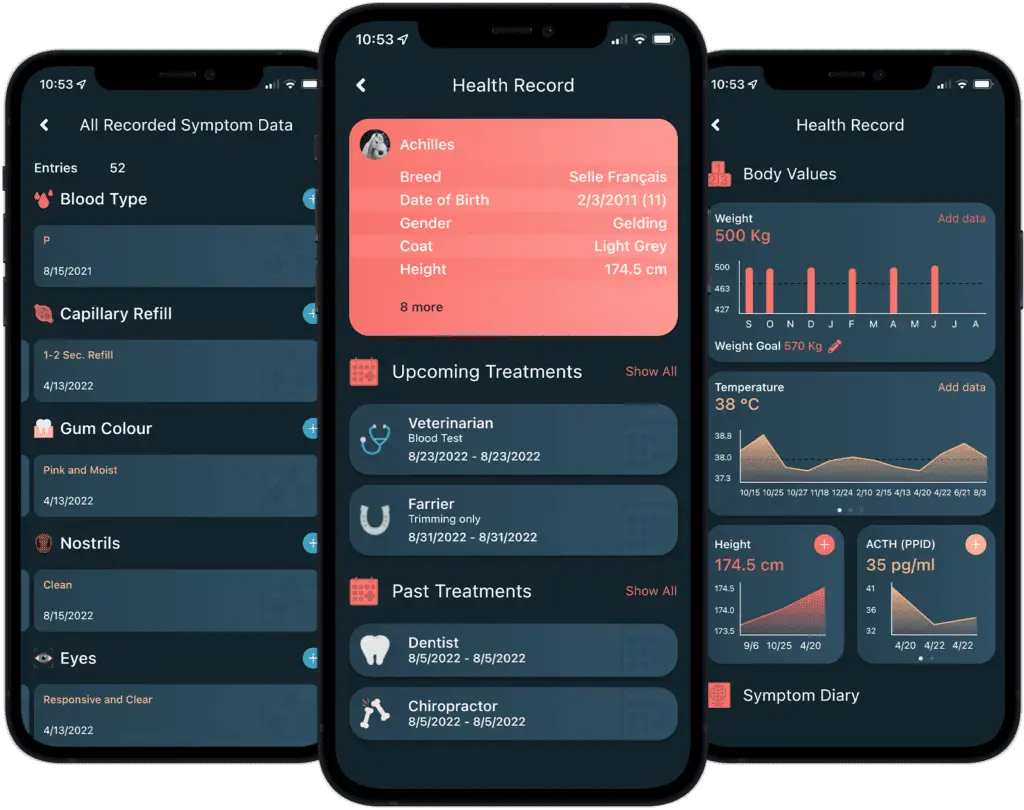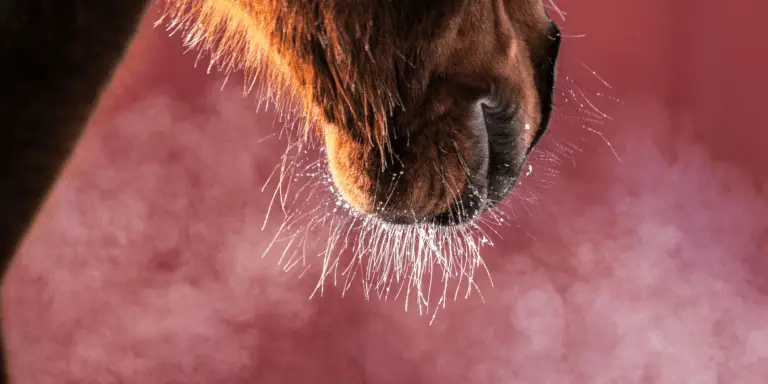
The Equine Colic
Expert Advice: This article was written by Dr. Pedro Penha Garcia, a veterinarian with 10+ years of experience. What is an Equine Colic? A Colic is something no horse owner wants to face, but if you have horses, you’ll likely

Pollen allergies can affect horses as it does humans. Similar to humans, horses can experience hypersensitivity to certain types of pollen, leading to unpleasant symptoms. In this blog post, you will learn more about the causes, symptoms, and management of pollen allergies in horses.
Horses can be allergic to various types of pollen, including that of grasses, trees, and weeds. When a horse comes into contact with these allergens, the immune system may exhibit an excessive reaction, releasing specific antibodies that trigger an allergic response.
A dry or allergic cough is one of the most common symptoms. The horse may start coughing during or after exercise or under certain weather conditions.
Watery or mucus-like nasal discharge can occur, making breathing difficult and leading to increased sneezing.
Horses with pollen allergies may be susceptible to respiratory difficulties, breathing faster, laboured breathing or wheezing.
Some horses with pollen allergies may develop itchiness, resulting in increased head shaking, rubbing against objects, or scratching the body.
The first step in managing pollen allergies is to identify the specific allergens to which the horse reacts. This can be done through skin tests or blood examinations. A veterinarian can assist in determining the allergens.
Tracking pollen levels, minimises the exposure for affected horses. It shows the times and types of pollen that are most prevalent in a particular region. A pollen radar can help adjust outdoor activities accordingly and keep the horse in protected areas when specific pollen levels are high.
Creating an allergen-free environment for the horse is crucial. This may involve removing allergy-triggering plants near the stable, limiting pasture time during peak pollen periods, and maintaining a clean and dust-free stable.
In severe cases of pollen allergy, veterinarians may prescribe medications such as antihistamines or corticosteroids to alleviate symptoms. Immunotherapy, where the horse is gradually exposed to increasing amounts of allergenic substances, can also be an option. Including a pollen season, which displays the times and types of pollen in a specific region, can help monitor the pollen exposure for allergic horses and facilitate allergy management. Below is an example of a pollen season:



Expert Advice: This article was written by Dr. Pedro Penha Garcia, a veterinarian with 10+ years of experience. What is an Equine Colic? A Colic is something no horse owner wants to face, but if you have horses, you’ll likely

It is nothing new that horses are very agile animals. But did you know that a horse’s skeleton consists of 252 individual bones? This means that a horse has 46 more bones than a human. However, horses do not have

Watery eyes, discharge from the ears, swelling or gum colour give you information about possible infections or injuries. In this blog post you can read how to interpret these symptoms. What You Need to Know About the Horse Head Discharge

Here’s how you can help your horse When the days start to get longer and spring arrives, we throw our thick winter coats into the basement and wait for the warmer weather. While we are ready for the change in

Just as it is with humans, the horse’s skin is the largest organ of the body. However, this blog post is dedicated to the organs that we cannot see from the outside. Let’s take a look inside the horse and

Temperature, Pulse and Respiration – Indicators of Your Horse’s Health Early detection of fever, respiratory abnormalities or a too low/too high pulse can save your horse’s life. The following will elaborate on how to take your horse’s temperature, pulse and